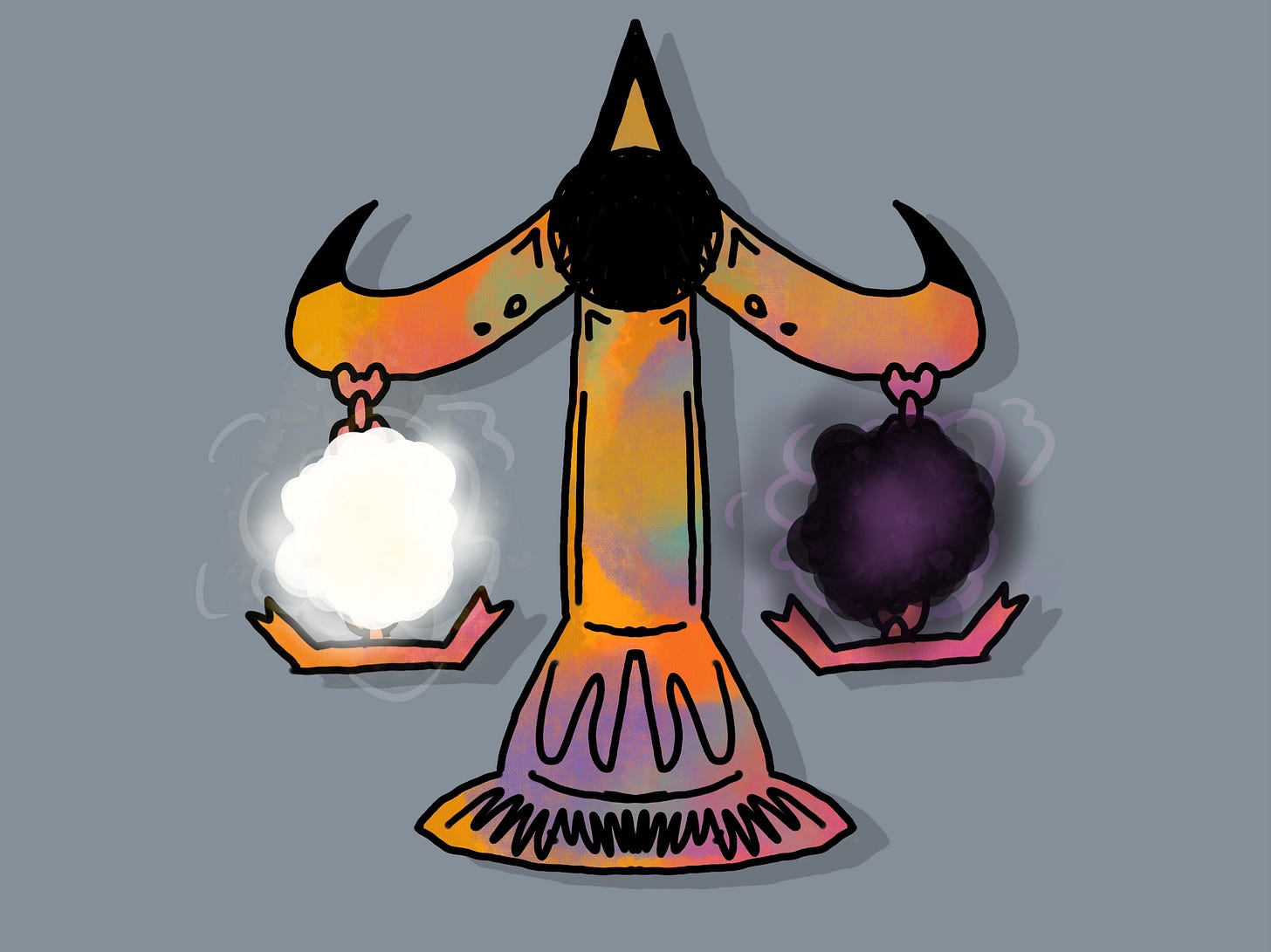On Balance
In the 1930s, Winston Churchill was in disgrace and in the political wilderness. His warnings of the Nazi danger, and of the dangers of appeasement, were ignored. And then—he was back in the government, he was PM, and with his oratory he injected into all of Britain his will to fight: “if this long island story of ours is to end at last, let it end only when each one of us lies choking in his own blood upon the ground.” He mobilized the English language and sent it into battle (Edward R. Murrow). The historian Andrew Roberts writes that
There are those...who consider the emergence of Winston Churchill as Prime Minister in May 1940, within hours of Hitler unleashing his Blitzkrieg upon the West, as a proof of the existence of God.1
But of course God had nothing to do with it. In reality Churchill’s rise was a response to a cosmic need, one built into the fabric of the universe: the need to restore Balance to the Force. Supreme Leader Snoke told us all about it, when he confronted Rey in The Last Jedi:
Darkness rises, and light to meet it. I warned my young apprentice [Kylo Ren] that as he grew stronger, his equal in the light would rise.
Examples abound. Rome and Carthage. Hamilton and Jefferson. Coke and Pepsi. Before the French Revolution Horatio Nelson was unemployed. When Napoleon rose to power and declared himself Emperor, Nelson rose in response. Napoleon’s victory over Austria at the Battle of Ulm was shadowed, next day, by the Battle of Trafalgar, and Nelson’s bold and daring destruction of the French and Spanish fleets. Or again, before the American Civil War Ulysses S. Grant was nobody, a 38 year old ex-Army officer working in his father’s harness and leather shop. But as Robert E. Lee grew stronger—by June 1862 he commanded the Army of Northern Virginia—Grant rose to meet him. In the Army once again, Grant was a superhero discovering his powers: “the uncertainty and sense of failure that had haunted [Grant] as a civilian seemed to drop away from him instantly”; he realized that “he knew what he was doing and that men would follow him.”
Burned into the American consciousness is that pair of opposing images, cut by the two generals, during Lee’s surrender at Appomattox Court House: Grant in his muddy, shabby uniform, approaching a Robert E. Lee decked out in “a brand-new, beautifully tailored pale gray uniform, gold braid glistening on his sleeves, a scarlet sash and a gold-braided belt around his waist, wearing a gilt presentation sword.”
Similar contrasts are evident in other examples. Hitler had charisma. He could transfix people with his eyes; “he could intimidate and dominate others simply by staring at them without blinking.” His speeches were theatrical efforts at massive rallies, set against “martial music, seas of flags, ... ranks of storm troopers, and especially dramatic lighting.” Churchill inspired a nation, maybe more than one, but he “never seemed to exert ... [a] personal, almost mystical power over others.” His famous speeches were delivered without special setting, in the House of Commons or over the radio; and “it wasn’t demagogic tricks that made him the greatest orator of the twentieth century, but his exceptional command of the English tongue.” The greatest contrast may be this:
After meeting Hitler people felt that he, the Führer, could achieve anything. But when people met Churchill they felt that they themselves could achieve anything.
The equal in the light, rising to meet the new power of the dark side, is a reflection of his or her counterpart; each feature exhibited by the one, is matched in the other by something flipped about and turned inside-out. There’s the mirror; what’s coming?
Sources: Hitler and Churchill by Andrew Roberts; Ulysses S. Grant by Michael Korda.


